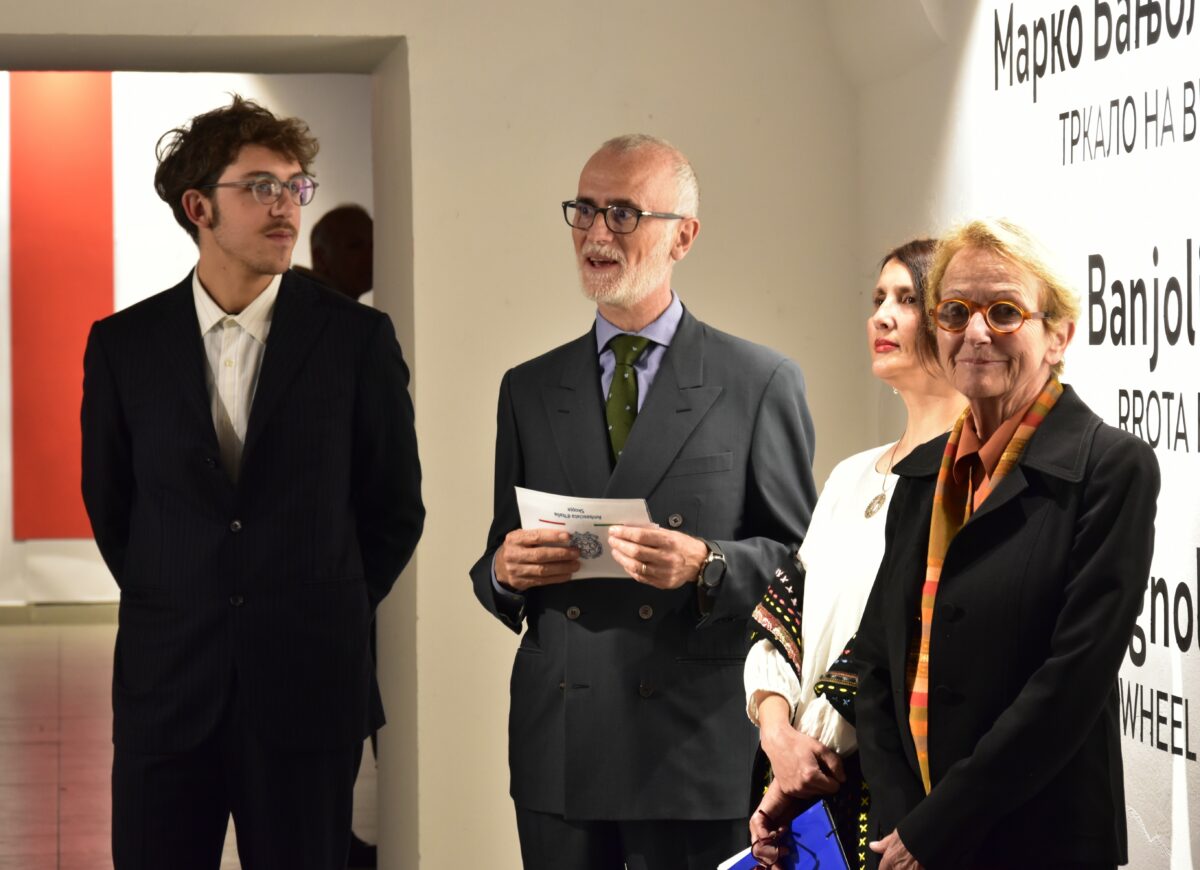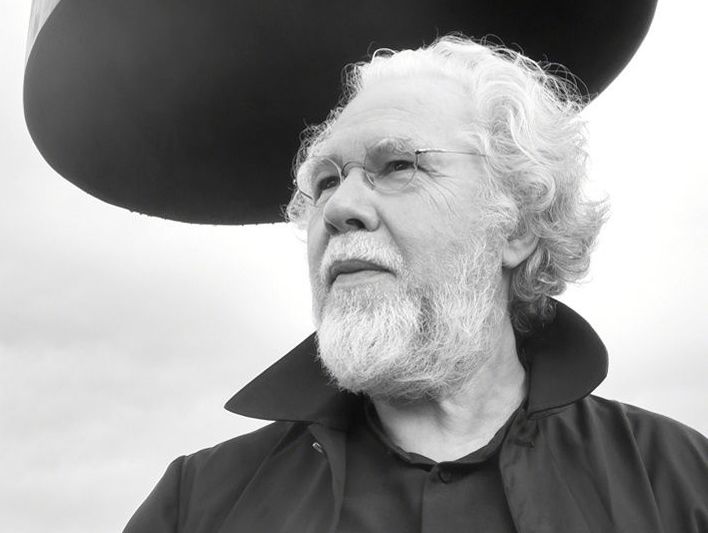By Annalisa Nicastro
Poets sing at times, not only in their poetic creations with verses knowingly carved out of a sole rhythm, but also, as in the case of Elio Pecora, they sing actual songs. His tenor voice, class of 1936, intoned the masterpiece of Neapolitan song "Era de maggio" (“It was in May”) and brightened an off-programme fervently requested by Arnoldo Mosca Mondadori, President of the “Fondazione Casa dello Spirito e delle Arti”. On this occasion, our poet and author performed in front of a packed house at the Academy of Fine Arts attending an event to award the “Montale Fuori di Casa Special Prize” to this author of short stories, novels, essays, theatrical texts and children’s poems, and collaborator of literary criticism in daily and weekly publications, magazines and Rai programmes.
The Academy of Fine Arts of Rome opens its doors to poetry, as the words of Cecilia Casorati, Director of the Academy, reminded us, underlining a constant attention to the interdisciplinary nature of languages with which to read culture more expansively, beyond the specialism gripping our times. After the introductory remarks by Cecilia Casorati, Adriana Beverini, President of the “Montale Fuori di Casa Prize”, and Vice-President Barbara Sussi revealed the motivation behind the Prize: “half a century of verse have by now consecrated Elio Pecora as a ‘classic’, not only for the attention he has always shown to Greek literature, tragedy, mythology and religion, but because he is an author it would be impossible to overlook by anyone aiming in the near future to learn of the great Poetry of the second half of the Twentieth century and the early years of the Twenty-first”.
Dauntless, bold, negated or forsaken unto the canons, lying in wait for the monstrance and illuding those they adorn. Nor does it fail to disown itself there where it is summoned.
All the essence of poetry is all in these verses by Pecora, which remind us of how it is a form of existence, of being in the world in a certain way.
It is certainly true that art teaches us the future, as underlined by the words of Mario Pieroni, Gallerist and President of Zerynthia, who took part in the prize-giving. All artists are able to capture the fears and the hopes of their times, often before others, as such prefiguring the future, what will be and what many still cannot see. The word found in its nudity: it is in this way that Pecora teaches us to be simply what we are. And it is an essential teaching that comes from the world of great Poetry.
It was words of love that Pecora had for Poetry during the prize-giving: “Poetry teaches emotions, feelings. The word is alive and poetry is in no way dead, quite the contrary, it will save the world, because poetry is peace”. His have always been verses of resistance to the difficulties of life, which is why his hero “today is he who searches for his truth and confronts it by delving into the horror of existence”. But not only. As the critic Daniela Marcheschi wrote in the introduction to the latest book by Elio Pecora, "L’avventura di restare" (“The Adventure of Staying”) (Crocetti editore 2023), a collection of poems composed from 1970 to 2020, Elio Pecora is recognised as having “the lucidity of looking at existence as it is, with its contradictions, with its emptiness, its resulting suffering, pain, guilt, but also joy and playfulness, celebration and sorrow. In his verses, even in the more disenchanted ones regarding the horror of existence, we always find a joy in things or in being alive, of being able as such to remember enjoying, despite the suffering, the beauty of being able to give them a name”.
Pecora is a classic poet with a life lived among books, he has always manifested a great admiration for Greek literature, tragedy, mythology and religion, and he has always been surrounded by literati friends among whom are Juan Rodolfo Wilcock, Elsa Morante, Alberto Moravia, Aldo Palazzeschi, Sandro Penna, Dario Bellezza, Amelia Rosselli, Elsa De Giorgi, Francesca Sanvitale, Maria Luisa Spaziani, who all loved saying their motto “The first verse is God-given, the rest is written by me”.
It all starts there, from one word, then everything becomes music.
It was in May, I forget not, not I
A song we sang in voices two
More I remember with the passing of time
Fresh was the air and sweet the tune
And it said, “ O heart, o heart
Heart of mine, far you go
I count the hours when you leave me
Who knows when you’ll come back”
I replied, “I’ll come back
When the roses reappear
If this flower returns in May
In May I will be here too
translation by Oliver Dorostkar



Comments
A great poet and a beautiful voice , So was Eugenio Montale, a great poet and baritone. I was honored to award him the Montale Prize outside the house.